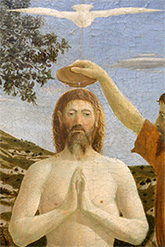 An epidemic of clinical obsessive-compulsive disorder struck the West during that great flowering of individualism known as the Renaissance. The primary obsession that tormented large numbers of Christians was fear of loss of salvation.
An epidemic of clinical obsessive-compulsive disorder struck the West during that great flowering of individualism known as the Renaissance. The primary obsession that tormented large numbers of Christians was fear of loss of salvation.
Remarkably, among those who developed what we now call OCD were three of the greatest luminaries in the history of the Christian religion: Martin Luther, John Bunyan, and Saint Therese of Lisieux. Luther, architect of Europe’s sixteenth century Protestant Reformation, is a figure of incomparable importance in entire the history of Western civilization. Bunyan, author of the immensely influential Puritan classic, The Pilgrim’s Progress, has perhaps influenced almost as many people as Luther. Saint Therese, the most popular Catholic saint of the present era, is also recognized as a pivotal reformer in the development of Catholic doctrine in twentieth century. Certainly all three of these remarkable individuals would be included on any list of the dozen most respected and influential Christians of the last millennium, and perhaps even of all time.

